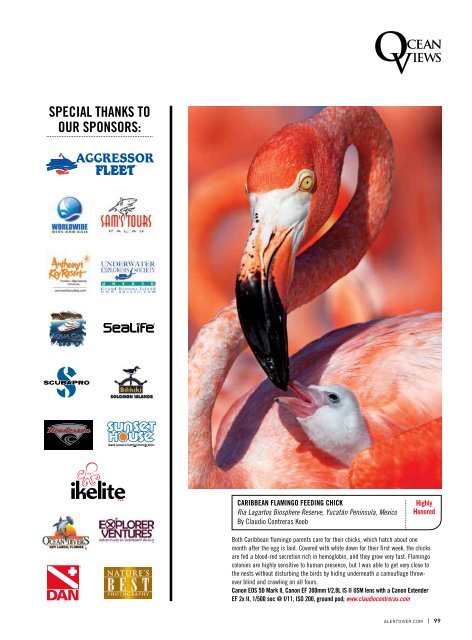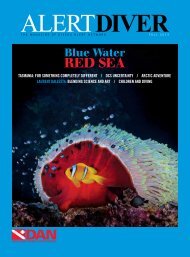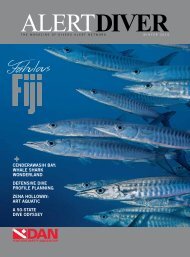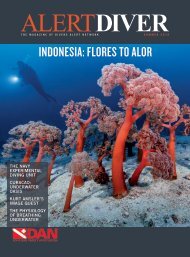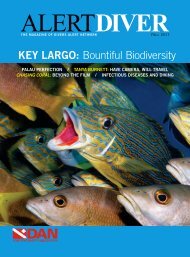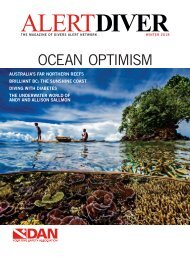AD 2016 Q2
As we pointed out in the spring 2013 edition of the Alert Diver, even being a dive buddy has potential legal implications. So, to bump this up a notch, what about the diver training organisations themselves? Where do they stand? How do they relate to South African law? Are they all considered the same under our legal system in spite of the differences in organisational structures and training programmes? How does this affect their respective instructors and trainee divers from a legal perspective? These are not exactly simple questions. It is certainly true that the respective training organisations differ in a number of ways. However, this does not imply that there are necessarily differential legal implications for each of them. In fact, under South African law, the legal principles are common in all matters. Therefore, if you suffer a loss and you (or your estate in the case of a fatality) wish to recover damages, the legal principles would be applied commonly; whether you are driving or diving. Although not a frequent occurrence, there have been quite a number of law suits associated with diving injuries and damages in South Africa. This is not surprising, as the occurrence of law suits is really a function of “numbers”. As training increases, so do the chances of injuries and, with it, the chances of legal recourse. So, it remains wise to insure yourself, your equipment or your business in a proper and effective way. But before getting back to the potential differences amongst the training agencies, let’s first explore the foundational legal principles on which any civil claim would be adjudicated: inherent risk, negligence and duty to take care.
As we pointed out in the spring 2013 edition of the Alert Diver, even being a dive buddy has potential legal implications. So, to bump this up a notch, what about the diver training organisations themselves? Where do they stand? How do they relate to South African law? Are they all considered the same under our legal system in spite of the differences in organisational structures and training programmes? How does this affect their respective instructors and trainee divers from a legal perspective? These are not exactly simple questions.
It is certainly true that the respective training organisations differ in a number of ways. However, this does not imply that there are necessarily differential legal implications for each of them. In fact, under South African law, the legal principles are common in all matters. Therefore, if you suffer a loss and you (or your estate in the case of a fatality) wish to recover damages, the legal principles would be applied commonly; whether you are driving or diving.
Although not a frequent occurrence, there have been quite a number of law suits associated with diving injuries and damages in South Africa. This is not surprising, as the occurrence of law suits is really a function of “numbers”. As training increases, so do the chances of injuries and, with it, the chances of legal recourse.
So, it remains wise to insure yourself, your equipment or your business in a proper and effective way. But before getting back to the potential differences amongst the training agencies, let’s first explore the foundational legal principles on which any civil claim would be adjudicated: inherent risk, negligence and duty to take care.
You also want an ePaper? Increase the reach of your titles
YUMPU automatically turns print PDFs into web optimized ePapers that Google loves.
MENS<br />
LOGO<br />
PMS 877 C PMS 187 C PMS PROCESS<br />
BLACK C<br />
PMS OPAQUE<br />
WHIT C<br />
SPECIAL THANKS TO<br />
OUR SPONSORS:<br />
Pantone 877C Pantone 187 C Pantone Opaque<br />
White C<br />
CARIBBEAN FLAMINGO FEEDING CHICK<br />
Ria Lagartos Biosphere Reserve, Yucatán Peninsula, Mexico<br />
By Claudio Contreras Koob<br />
Highly<br />
Honored<br />
Both Caribbean flamingo parents care for their chicks, which hatch about one<br />
month after the egg is laid. Covered with white down for their first week, the chicks<br />
are fed a blood-red secretion rich in hemoglobin, and they grow very fast. Flamingo<br />
colonies are highly sensitive to human presence, but I was able to get very close to<br />
the nests without disturbing the birds by hiding underneath a camouflage throwover<br />
blind and crawling on all fours.<br />
Canon EOS 5D Mark ll, Canon EF 300mm f/2.8L IS II USM lens with a Canon Extender<br />
EF 2x II, 1/500 sec @ f/11, ISO 200, ground pod; www.claudiocontreras.com<br />
ALERTDIVER.COM | 99


